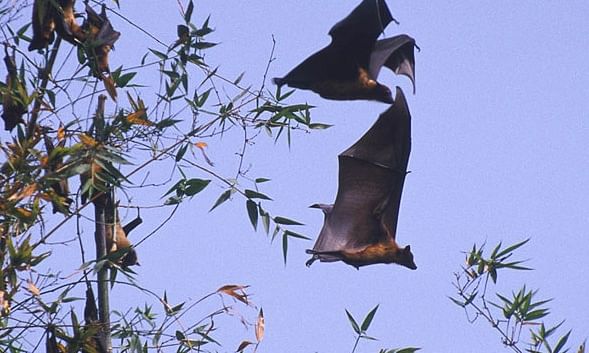Home
+
The death toll from the virus this winter reaches seven

Published : 05 Feb 2023, 11:36 PM
Government’s disease control agency has reported two more deaths from Nipah virus infection, taking the toll this winter to seven.
Dr Tahmina Shirin, director at the Institute of Epidemiology Disease Control And Research, said on Sunday the number of Nipah virus cases this season was 10 until Feb 3.
The zoonotic virus can be transmitted from animals to humans, through foods contaminated by animals and from humans to humans.
Fruit bats, which infect date juice in winter, are the natural host of the virus, which is currently one of the deadly emerging pathogens.
Most of the cases were from Rajshahi Division and all were currently receiving treatment, Health Minister Zahid Maleque said on Jan 29, while revealing eight cases and five deaths from the disease this winter.
He said the number of infected was “higher” than last year. Efforts to prevent the disease from spreading were underway through promotional materials on TV and in newspapers, he added.
Health authorities have marked 32 districts in Bangladesh as being at risk of the Nipah virus infection and directed physicians to take adequate precautionary measures while attending to patients with fevers, a primary symptom of the illness, in hospitals.
The Dhaka North City Corporation's COVID-dedicated hospital in Mohakhali has also been instructed to prepare 20 beds for the treatment of Nipah virus patients.
Since 2001, Nipah virus patients have been found in 33 districts, according to the IEDCR
Any area where a case of the Nipah virus is detected is considered 'risky', said Dr Mushtuq Husain, an adviser at the IEDCR.
“This is because anywhere a Nipah virus patient is found is also likely to have bats and palm sap. All parts of the country are vulnerable to the Nipah virus, but the districts where it has been detected are advised to take extra precautions."
Last Thursday, Sheikh Daud Adnan, acting director of the health directorate's hospital and clinic wing, issued a letter to local health authorities as well as public and private hospitals across the country, urging doctors to take special precautions. These include wearing a mask and also washing hands with soap before and after seeing a patient.
They have also been advised to move a patient to the isolation ward if they start showing symptoms of a fever. In addition to fevers, patients should be admitted to the intensive care unit if their condition is critical. Caregivers of patients in intensive care are only required to wear gloves and masks.
But the Nipah virus is not aerially transmissible, according to the health directorate.
Cases of the virus have been reported in the Rajbari, Naogaon, Rajshahi, Shariatpur, Pabna and Dhaka districts this year, according to Prof Md Nazmul Islam, director of the DGHS's infectious disease control branch.
Dr Nazmul believes there is no need to panic, but stressed the need to proceed with 'extreme caution'.
“There is no vaccine for this disease. More than 70 percent of people affected by the disease die. Those who survive develop physical disabilities. The number of patients may not be high, but most of those who were infected have died. That is why we need to be extremely careful," he said.
Dr Nazmul advises against the consumption of raw date sap. Sales, marketing and promotion of raw date palm sap should also be restricted, he said.